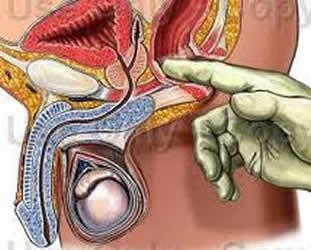 Cancer is a disease that affects millions of people across the world, but fortunately advances in medicine are making it easier to treat people. Although there are still many cases of cancer in which the diagnosis arrives too late and the cancer has spread beyond treatment, getting regular checkups from the doctor is a good way to prevent this from happening to you. Some of the common forms of cancer are lung cancer, brain cancer, breast cancer, testicular cancer, and prostate cancer. In this article, we’ll talk specifically about prostate cancer and what can be done to identify and treat it.
Cancer is a disease that affects millions of people across the world, but fortunately advances in medicine are making it easier to treat people. Although there are still many cases of cancer in which the diagnosis arrives too late and the cancer has spread beyond treatment, getting regular checkups from the doctor is a good way to prevent this from happening to you. Some of the common forms of cancer are lung cancer, brain cancer, breast cancer, testicular cancer, and prostate cancer. In this article, we’ll talk specifically about prostate cancer and what can be done to identify and treat it.
Prostate cancer affects men only, as it affects the prostate gland, which is part of the male reproductive system. Although the disease affects millions of men across the world, a majority of the cases of prostate cancer are seen in the United States. The problem with prostate cancer is that many times men affected do not notice any symptoms. Although the disease can be spotted with regular checkups, many men are embarrassed to get them done and don’t find out until the cancer has reached an advanced stage.
Prostate cancer affects more men over 50 than under, however it can affect men at any age so long as they have a fully developed reproductive system. If the condition does become symptomatic, the most common problem is difficulty urinating or controlling urination. In some cases, blood may be mixed in the urine, in which case a doctor’s appointment should be schedule immediately. There are some cases where sexual functionality is affected, although these symptoms occur less often than urinary problems do.

GENETİCS AND PROSTATE CANCER
There aren’t any common causes for prostate cancer aside from age and genetics, although race and lifestyle can also increase risk. Black men are at the greatest risk for prostate cancer, followed by twin and those that have had a father with the disease. Men that eat a diet high in fat are also susceptible to prostate cancer, which seems to be a result of the omega-6 chain of fatty acids. Men with poor diet and lifestyle habits are at greater risk, but changing to a diet high in fiber and low in fat is said to have reduced risk for most men. Still, one of the first things used to treat prostate cancer is a change in diet, so do your best to eat healthy regardless of your condition.
Treatment for prostate cancer is similar to other forms of cancer. Radiation, chemotherapy, and surgery are all viable options. In some cases, surgery to remove some or all of the prostate are used. Also, hormone therapy can be used to prevent cancer growing hormones from reaching the prostate. In the beginning, most doctors will use non-invasive treatments combined with monitoring to see if the disease can be stopped without more severe forms of treatment. However, if the cancer has begun to spread to other parts of the body then chemotherapy and radiation will be used. Prostate cancer seems to be slow growing at first, which is why many men do not notice symptoms until later stages. As a rule, most doctors will use surgery as a last resort as removing the prostate gland can result in impotence or severe urinary problems.
AGE AND PROSTATE CANCER
Doctors suggest than all men over the age of 40 schedule prostate exams every year, or every 5 at a minimum. The best form or treatment is prevention, so making sure that you eat a healthy diet will go a long way towards helping you avoid this condition. Studies also suggest that frequent sexual activity can work to exercise the prostate and keep it healthy. Ask your doctor to learn more about prostate cancer treatment and prevention.

